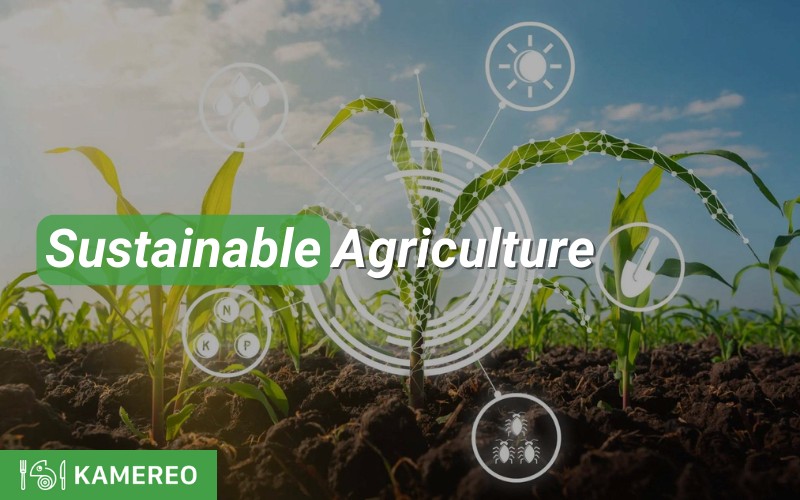Sustainable agriculture is a farming method aimed at long-term development, meeting the current food and textile needs of the present generation without compromising the ability to meet the needs of future generations. Sustainable agriculture includes three main aspects: economic, social, and environmental. Explore the concept of sustainable agriculture in detail with Kamereo in the following article.
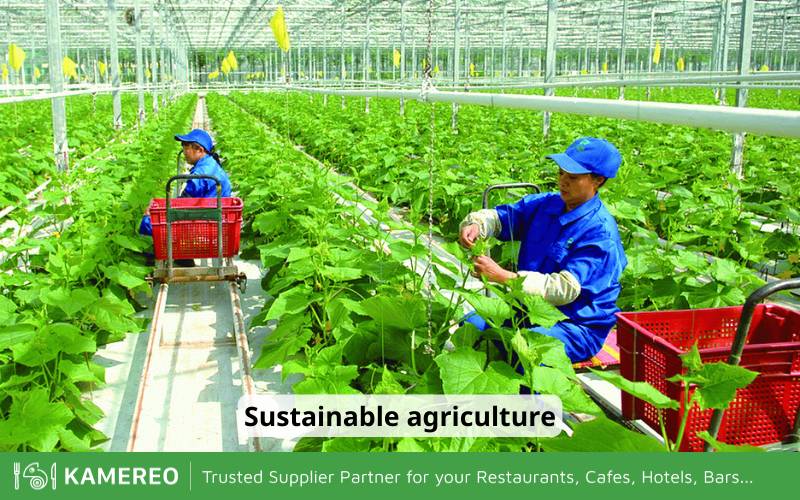
What is sustainable agriculture?
Sustainable agriculture is a method that focuses on long-term sustainability, meeting the food and textile needs of current society. At the same time, sustainable agriculture does not impact the ability to meet the needs of future generations.
To implement sustainable agriculture, three main principles must be followed:
- Ensure fair and sufficient income for today’s farmers.
- Respect the environment and protect natural resources such as water, soil, and energy.
- Minimize negative impacts on the future development of agriculture.
These principles simultaneously support maintaining a balance between providing food for the present and protecting resources to meet future needs.
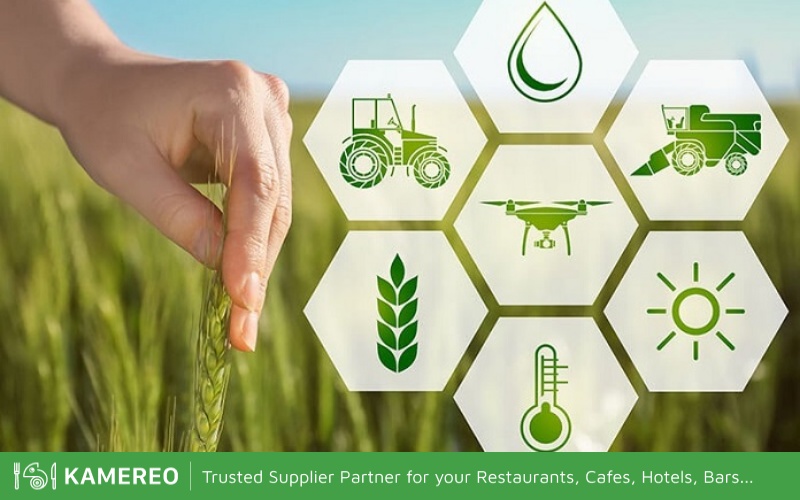
Goals to Achieve Sustainable Agriculture
To build a sustainable agriculture, the following goals need to be ensured:
- Protect and restore soil fertility and other natural resources during cultivation.
- Optimize the management and efficient use of resources in farm management.
- Ensure sufficient and stable income for the farm.
- Promote harmony in natural biological cycles and effective control.
- Minimize the use of non-renewable inputs and reduce the amount of materials purchased from outside.
- Encourage collaboration and support from family and farmer communities.
- Reduce negative impacts on the environment, human health, safety, while protecting wildlife and maintaining water quality.
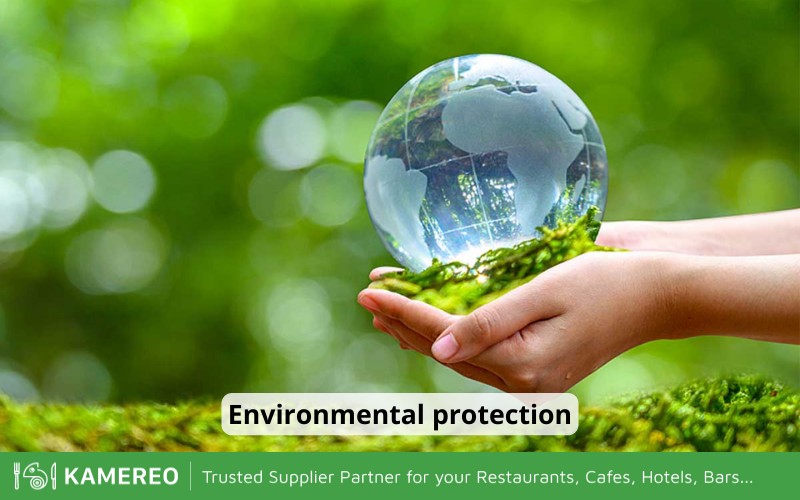
Role of Sustainable Agriculture
The method of sustainable agriculture is a trend that helps develop the ability to supply agricultural products for the present and the future. Therefore, the role of this method is crucial for the world’s development.
For the economy
Agricultural products play a role as a crucial input source for the processing industry. This enhances the value of agricultural products, especially in the context of Vietnam’s current export goals.
For society
The development of sustainable agriculture plays an important role in the contribution of the farming community to social development. This farming method not only ensures fairness in the development process but also contributes to increasing income for farmers, improving the quality of life. Moreover, sustainable agriculture also reduces the gap between rich and poor in different social groups.
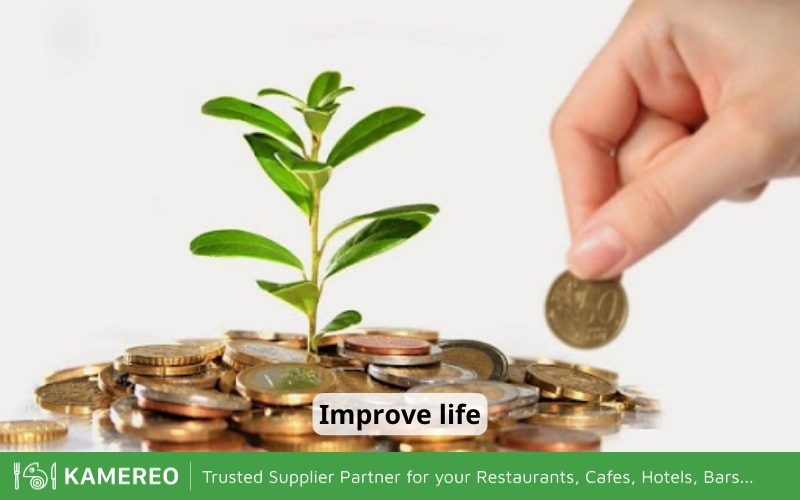
For the environment
Sustainable agriculture protects and efficiently utilizes natural resources such as land, water, and forests. This method also helps minimize environmental pollution, protect biodiversity, and effectively respond to climate change while preserving ecosystems.
Examples of Sustainable Agriculture Methods
Here are some examples of sustainable agriculture methods:
- Organic farming: Using natural materials such as compost and green manure for crop fertilization and pest control.
- Biological agriculture: Using beneficial organisms such as microorganisms and beneficial insects to protect crops and limit the use of chemicals.
- Precision agriculture: Using advanced technology to manage crops and livestock efficiently, minimizing resource waste.
- Hydroponic farming: Growing crops in nutrient solutions without using soil.
- Aeroponic farming: Growing crops in the air, using water and nutrient solutions as mist.
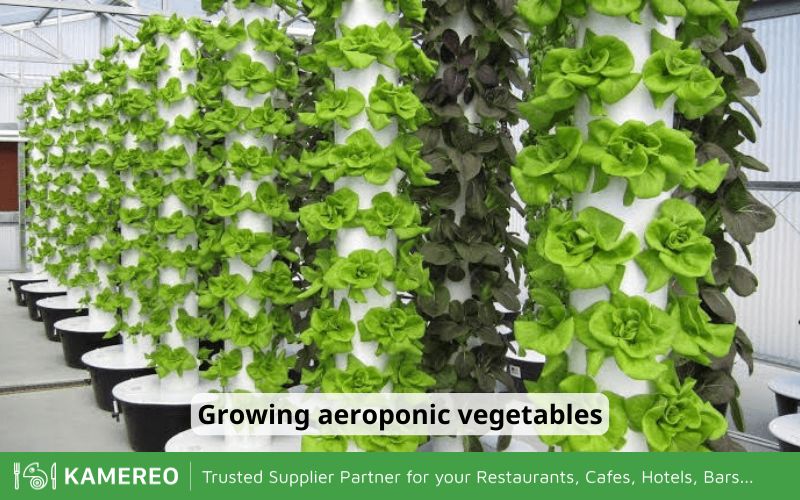
Developing Sustainable Agriculture
To promote sustainable development in agriculture, the following methods can be implemented:
Crop rotation
A common and effective method is implementing crop rotation systems. This helps farmers address pest and disease problems since some pests only prefer certain types of food. Therefore, when implementing crop rotation and diversifying crops, farmers can control the increase of harmful pests while improving soil quality.
Cover cropping
Growing cover crops is an essential cultivation technique in sustainable agriculture. This technique brings many benefits to the environment, crops, and farmers such as:
- Protecting the soil from erosion, runoff, and landslides.
- Retaining moisture for the soil, reducing water loss.
- Improving soil structure, increasing organic content in the soil.
- Limiting the growth of weeds, reducing the cost of weeding.
- Providing nutrients for crops, especially leguminous plants.
- Enhancing biodiversity in agricultural ecosystems.
- Cover cropping helps improve biodiversity.
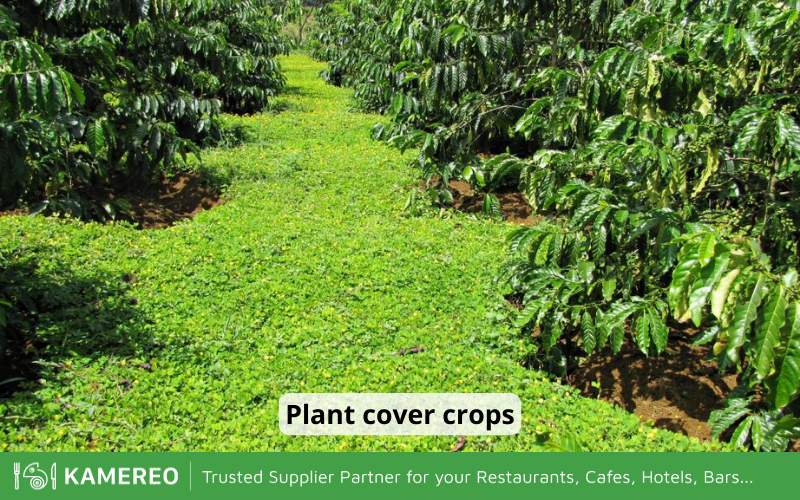
Create nutrients for the soil
Soil nutrition enhancement: An important aspect of sustainable agriculture is to enhance soil quality by supplementing nutrients before, during, and after each season. Healthy soil conditions create ideal conditions for beneficial bacteria and insects, helping to improve soil quality and enhance crop yield. Nutrient supplementation for soil can be done through the use of organic fertilizers, microbial fertilizers, or chemical fertilizers, depending on the type of soil and specific crops.
Use of renewable energy sources
Renewable energy sources such as solar energy, wind energy, etc., play a crucial role in the development of sustainable agriculture. Integrating renewable energy into large farms not only increases productivity but also reduces the risk of waste discharge into the environment.
For example, using solar energy as a power source for pumps, heating systems in greenhouses, or electric fences is an effective method in agriculture. Additionally, reusing waste from livestock to produce biogas not only reduces living costs but also provides conditions for reinvestment in farm infrastructure.
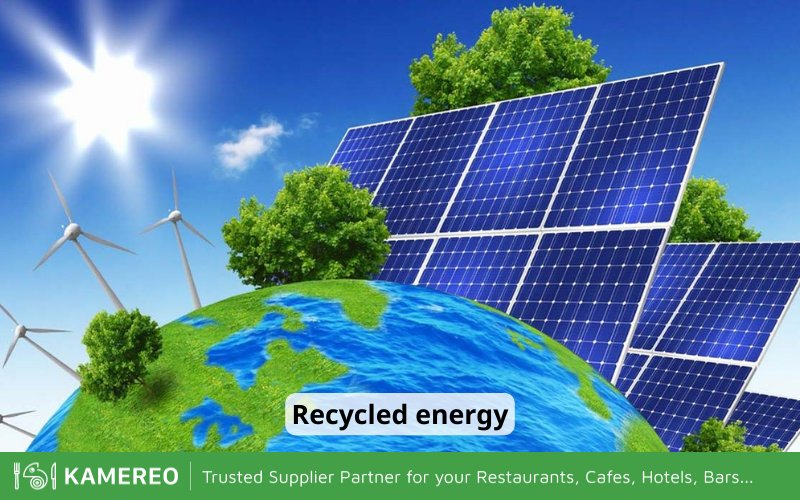
Biological pest management
Applying biological measures in managing harmful pests not only helps reduce the use of chemical plant protection products but also minimizes environmental pollution. This method contributes to protecting beneficial species, maintaining human health, and reducing the risk of exposure to hazardous chemicals.
Local emphasis
Focusing on local aspects in distributing agricultural products helps save costs, reduce risks in transportation and packaging. Moreover, this approach brings the ability to participate in farmers’ markets or community consumer points in the area. Prioritizing the local aspect not only supports the local community but also helps reduce pressure on product storage locations.
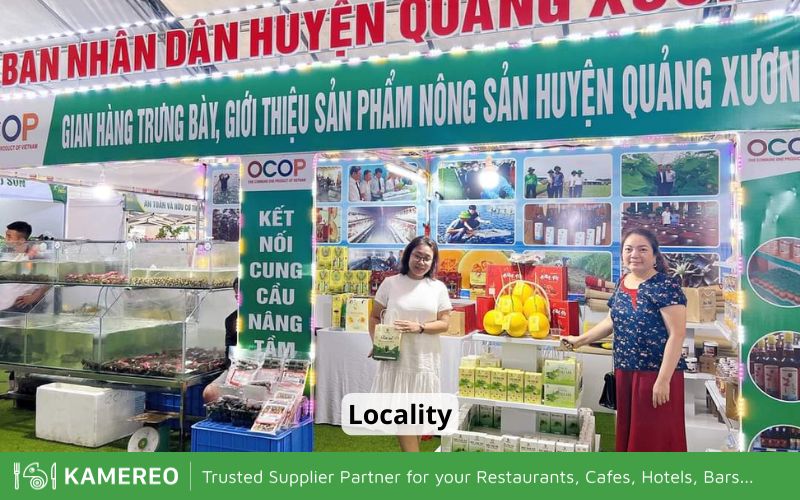
Crop and water source management
In sustainable agriculture, using local plant varieties with suitable characteristics for the region helps increase adaptability and growth. Simultaneously, this reduces the risk of harmful pests. Furthermore, water plays an essential role in agricultural development. Rainwater storage systems can be built to use as irrigation water during dry periods. Also, consider models of reusing irrigation water to limit water shortages and reduce costs in the cultivation process.
Record keeping and data storage
Finally, note-taking and data storage play a crucial role in ensuring accurate guidance and achieving set goals. Sustainable agriculture is a long-term solution that not only enhances the value of the agriculture industry but also plays a decisive role in maintaining the ecological balance in the face of issues such as chemical misuse in agriculture, environmental pollution, the proliferation of contaminated food,…
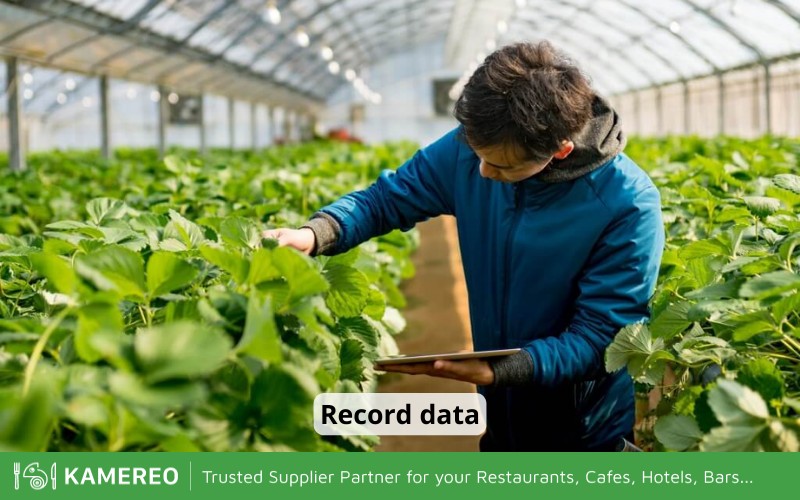
Read more:
Sustainable agriculture is an inevitable direction for the future of the agricultural industry. Applying sustainable farming methods will help protect the environment, ensure food security, and improve the lives of farmers. Follow the Source of Supply – Raw materials category for more useful information about agriculture!




